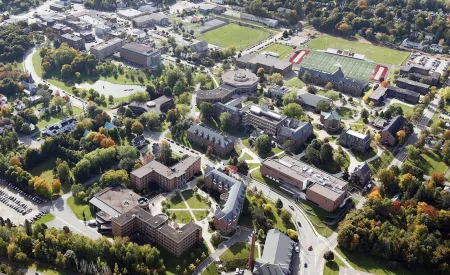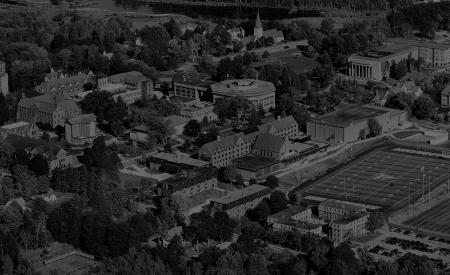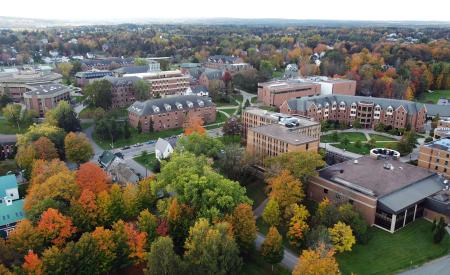Fourth-year biology and data science student Heather MacTavish wins first place at annual data challenge
During the fall study break, fourth-year biology and data science student Heather MacTavish participated in the 8th annual University of New Brunswick (UNB) Data Challenge, eager to explore a new opportunity and challenge herself.
The event brought together students from across Canada to demonstrate the power of open data. Out of 112 team applications, 18 teams from 14 Canadian universities advanced to the Qualifiers round, which took place Friday, Nov. 29. Competitors created infographic posters and presentations using open data to tell a data-driven story, highlighting insights and potential improvements to community services. Individual students or teams competed for over $4,500 in prize money.
MacTavish won first place in the presentation category for her presentation called ER Solution Seekers.
“I decided to focus on a presentation that was about the barriers of healthcare in New Brunswick because that is something I'm very passionate about,” MacTavish says.
Originally from Barrie, ON, where walk-in clinics offer immediate care, MacTavish says the concept of walk-in clinics in New Brunswick operates differently. She says she was particularly concerned about the overuse of ERs in New Brunswick due to a lack of walk-in clinics and primary care physicians.
The primary dataset she chose was from the New Brunswick Health Council 2023 Primary Care survey on barriers to healthcare in the province. The open data included questions about healthcare accessibility, primary care physicians, and emergency room use for non-urgent issues.
To refine her project, she sought feedback from her professors, including Dr. Matthew Betti, assistant professor of mathematics and computer science. MacTavish says Betti offered valuable insights and suggestions on which graphs would help support her points and enhance the visual impact of her presentation.
“Heather’s win was no surprise,” says Betti. “Her passion for public health and her ability to synthesize data into a digestible and compelling story shone through in her presentation.”
MacTavish also credits her data visualization class for helping her create clear, impactful visualizations that tell a compelling story.
“One of my recommendations was to send surveys to different communities asking what services or trouble they had with navigating the healthcare system because the top issue was that service was not available in the area.”
Some of her other recommendations included increasing the number of walk-in clinics, spreading awareness of existing healthcare resources, supporting rural healthcare, and increasing local doctor training through the expansion of residency spots in medical schools in the province.
“I was lucky enough to have taken the data visualization course with Dr. Riley as part of my minor in data science,” she says. “During that class, a lot of focus was put on visualization and analyzing datasets and making sure that you can get the best and most clear visualization from the data that you are looking at. I think the skills that I got from that class translated into this data analysis.”
She hopes her findings encourage action on healthcare in New Brunswick, particularly in the development of community clinics and better healthcare services in underserved and rural areas. As part of the Data Challenge, MacTavish’s presentation was shared with the Government of New Brunswick, which was also one of the competition's sponsors.




